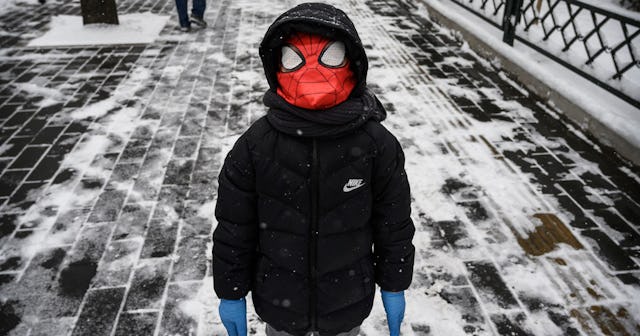Kids Are Less Susceptible To Coronavirus Than Adults And Experts Don't Know Why

As the coronavirus spreads, the number of children affected remains remarkably low… but why?
You can’t swing a stick without hitting a new headline about the novel coronavirus, and it’s understandable. What we know about it is disconcerting. So far, more than 90,000 people have been sickened by it, 3,000 of whom have tragically died. But there’s something medical professionals don’t understand about the coronavirus that’s oddly comforting: It affects children with far less frequency than it affects adults.
It goes without saying we’ll all take this unexpected mercy. Still, health experts are downright perplexed by it. “This is one of the unusual findings and curveballs that this virus keeps throwing at us,” Dr. Frank Esper, a pediatric infectious disease specialist at Cleveland Clinic Children’s, told the Today show. “Normal coronaviruses seem to affect children and adults equally, but this one, for whatever reason, certainly skews more to the adult population.”
Granted, it’s definitely a silver-lining-of-a-storm-cloud situation. No one wants this to turn into a full-blown pandemic, as some health officials are predicting. But, if it does, let’s be real — knowing that our kids are, for some inexplicable reason, less susceptible to falling sick feels hopeful during a time when the undeniable inclination is all-out panic.
So, here’s the nuts and bolts of it. According to a World Health Organization-China Joint Mission report, only 2.4 percent of all reported cases of COVID-19 in China (where the outbreak started) have been children. And of that, only 2.5 percent experienced any of the severe symptoms associated with the illness. Plus, only a minuscule 0.2 percent became critically ill due to the coronavirus.
Globally, there have been no COVID-19 deaths in young children reported yet.
Naturally, pediatric health experts do have a few working theories as to why there’s a discrepancy in cases between children and adults. It could just be a matter of how this particular strain affects children and adult immune systems differently. “We’ve seen similar patterns for other diseases — chickenpox, for example. Adults who get it tend to get much more severe cases than children,” said Dr. Vanessa Raabe, assistant professor in pediatric and adult infectious diseases at NYU Langone.
And you know how kids are constantly bringing germs (read: sickness) home from daycare or school? Well, as frustrating as it can be, it might actually be protecting our little ones in the face of this outbreak.
Explained Dr. Buddy Creech, an associate professor of pediatric infectious diseases at Vanderbilt Children’s Hospital, “Children’s immune systems are used to being assaulted constantly, so it’s to their benefit to coordinate and regulate their response. At the end of the day, if [their immune systems] freaked out about every single virus every time, they would be in the ICU. Instead, kids are really good at making good, fast immune responses.”
You’ve gotta admit, that makes sense. There are several different types of coronaviruses, per the CDC, and people commonly get affected with four in particular: 229E, NL64, OC43, and HKU1. These can cause people to develop a runny nose, cough, sore throat, fever, headache, and other common cold or flu-like symptoms. Sounds familiar, right?
Still, for now, these theories are purely speculative. “We simply do not understand why kids have been spared,” underscored Creech.
Since this remains a mystery — and since there are documented cases of kids being affected — your kid isn’t off the hook. You should still be taking all of the recommended precautions to prevent the spread of the novel coronavirus. So, wash those hands really well and thank whatever higher powers that be for small mercies (however long they last).
This article was originally published on